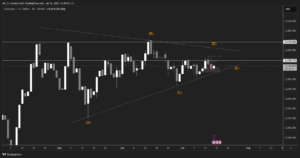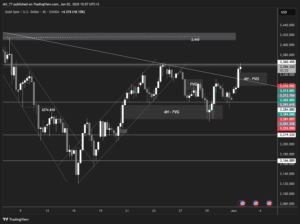Prices for copper, aluminium, tin, and other metals have plunged.
In a year as rough as 2022 has been, how much has the fight against inflation affected other sectors as well? Central bankers strive to fight inflation by tightening monetary policies; thus, it came as no surprise that, according to Bloomberg News, in the midst of rising recession fears, industrial metals have had their worst quarter since the financial recession of 2008, with prices for copper and other metals plunging this month, mainly due to the decreased demand resulting from a slowdown in the global economy. For instance:
• Aluminium: prices for the metal on the London Metal Exchange show that aluminium (LME) is more than one-third down compared to two months ago; aluminium is currently trading at $2,445 (at the time of writing), compared to $3,442 in April.
• Steel: Steel (HRcoils) is now ruling, approximately, at $1,120 per ton, compared to early April when it was around $1,540 per ton.
• Zinc is currently trading at levels of $3,539 per ton, down from $4,563 per ton in April.
• Tin dropped 21%, currently trading at $25,050. The tumble marked tin’s worst week in forty years when a crisis froze London trading for years.
Regarding copper, the most important metal of them all, it, too, fell by more than 20% compared to March, 2022. Last week, copper futures on the London Metal Exchange slid to $8,280 a ton, hitting a 16-month low. Copper, a bellwether metal for the economy, is used across numerous sectors, such as in construction, industrial machinery, and advanced electronics; therefore, changes in the economy and changes in the market are closely related. And despite a subsequent, albeit small, recovery in copper prices, commodity analysts are not particularly optimistic; so far, copper dropped 11% in June, putting it on course for one of the largest monthly losses in 30 years, Bloomberg News said. So, even as the Covid-19 lockdowns in China started to ease, experts still anticipate a further decline of around 20%. Amelia Xiao Fu, head of commodities strategy at Bank of China International, stated: “Even if China recovers in the second half, it won’t be able to single-handedly boost prices back to new highs — that age has gone,” before adding “If other major economies are heading towards a recession, China won’t be growing at exceptional rates either.”
The prices of metals also negatively affect the stocks
The decline in metal prices has also hurt the stocks of domestic metal producers. The Nifty Metals Index dropped from its most recent peak of 6,755.55 in early April to a sharp decline of more than 30%, going down to 4,490.75 on June 22nd. Further, due to the precipitous decline in the prices of aluminium, experts have reduced the FY23 Ebitda (Fiscal Year 2023 – Earnings before interest, taxes, depreciation, and amortization) predictions for aluminium producers anywhere between 3-18 percent, adding that among the reasons that aluminium producers would be negatively impacted are the rising prices in coal.
Disclaimer: This article is not investment advice or an investment recommendation and should not be considered as such. The information above is not an invitation to trade and it does not guarantee or predict future performance. The investor is solely responsible for the risk of their decisions. The analysis and commentary presented do not include any consideration of your personal investment objectives, financial circumstances, or needs.





